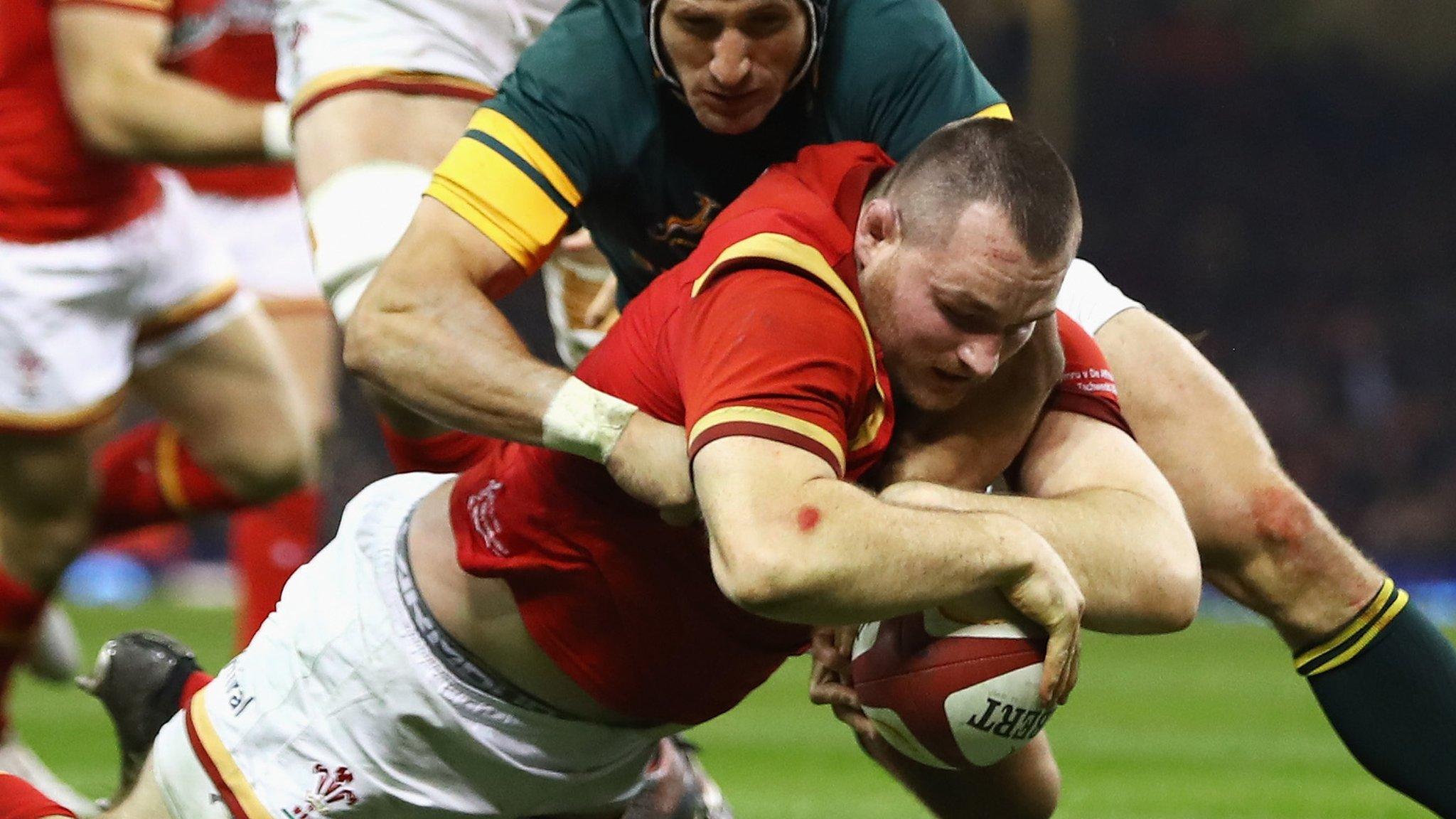Wales, Rob Howley and the tricky question of perception
- Published
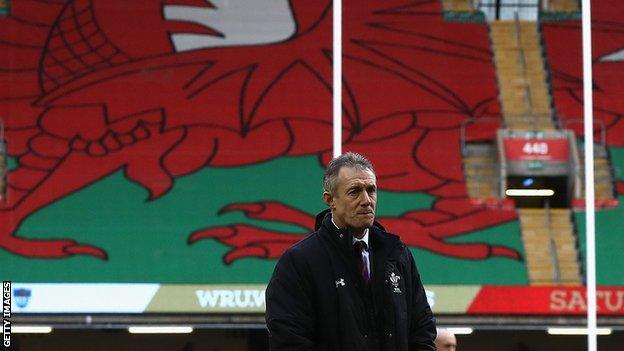
Rob Howley and the giant flag used to cover empty seats in the north stand of the Principality Stadium
Perception is a peculiar thing, a trickster that plays games with the facts and the impressions they leave.
The bare statistics of Wales' autumn series shout success. Four played, three won, with two of those wins against sides who play in the southern hemisphere's revered Rugby Championship.
Wales have not managed that since 2002.
But interim coach Rob Howley's media conference after Saturday's 27-13 victory over South Africa was far from euphoric. Not exactly the wake that followed when Springbok coach Allister Coetzee faced the media a little later, but not a party either.
It's only the third time Wales have beaten the Springboks and it was a record winning margin against the southern powerhouse.
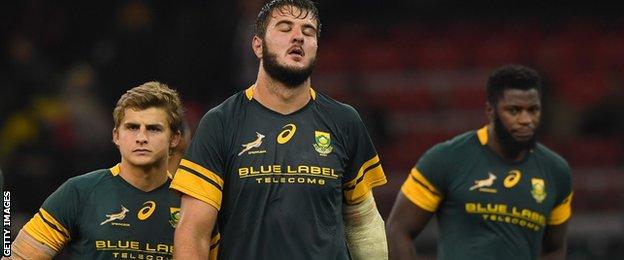
Pat Lambie (left) and Lood de Jager can't hide their disappointment in Caridff.
Powerhouse. A word that hardly applies to this edition of South Africa.
The defeat was their eighth in 2016, something that has never happened before.
The president of their union Mark Alexander outlined plans for an overhaul of rugby administration as well as for a Springbok review after a "profoundly disappointing" season.
"We are acutely aware that we have failed to live up to the Springboks' proud heritage," he said.
"We have collectively let down our supporters, our commercial partners and our broadcast partner. I would like to apologise to all our stakeholders for the disappointments we have all suffered this season."
No need for interpretation there. But the truth is Wales let them off the hook in Cardiff.
Shut up shop too early
Leading 20-6 early in the second half and with the Boks down to 14-men with scrum-half Faf de Klerk in the sin-bin, Wales failed to go for the jugular.
It almost backfired when Uzair Cassiem scored in the 70th minute, before Justin Tipuric restored the balance of power with a superb try to cap a fine personal display.
Justin Tipuric scores fine try for Wales
Captain Gethin Jenkins' impression was Wales took their foot off the gas.
"We were comfortable. We didn't feel really threatened until we shut up shop a bit when we got to 20 points to six," said the prop.
"We tried a drop goal that was only a couple of inches wide but I thought perhaps we should have played a bit more there to kill the game off.
"We shut up shop a bit too early and should have been relentless and kept going but I'm still really proud of the win.
"We tried to hold on to the win when perhaps we should have carried on playing a bit more."
Impressive neighbours
The last Wales coach who sat down at the end of an autumn series to reflect on three wins was Steve Hansen in 2002.
So there was some justification in Howley's contention that Wales have achieved their autumn gold standard of bettering their 70% home record.
The problem is the nature of Wales' performances compared to those of Scotland, Ireland and especially England in November.
Winning is good, but the perception is the neighbours are doing it in more style and without the horrible hiccup that was the 32-8 defeat by Australia.
Howley was happy with a record win over South Africa - "we'll take it," he said - but realistic in his assessment of what faces Wales in the New Year.
"Ireland have beaten Australia, England have been playing particularly well and it's good for us that we've got a big scalp in the shape of South Africa," he added.
"We play England and Ireland at home in the Six Nations.
"And we'll have to go to another level if we are going to get near the likes of England and Ireland."
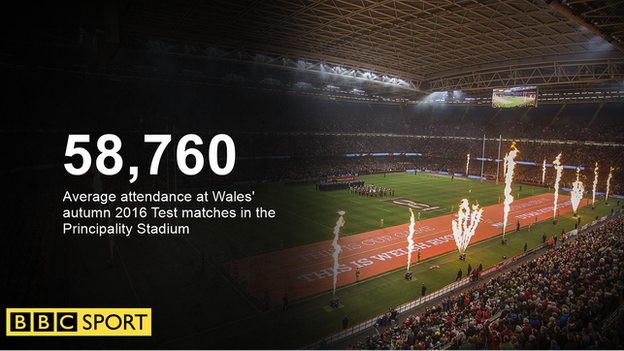
Where are the crowds?
Another perception has been a lack of crowds in Cardiff, with the giant red dragon flag unfurled three times to cover empty seats in the north stand.
But Wales rarely sell out autumn internationals. The last time all 74,500 tickets were sold for anyone other than New Zealand was in 2009 against Australia.
So suspicions of a lack of interest among the Welsh public are probably exaggerated and the official attendance figures compare favourably with previous autumn series.
The aggregate attendance for the four matches this November of 235,042 matches the average for a four-match series this decade.
So what next?
With head coach Warren Gatland not due to return from his British and Irish Lions duties until the autumn of 2017, Howley has five more games in charge.
The move towards a more open, attacking game will continue in the New Year with Howley praising the improved skills of his tight forwards in particular.
Second row Alun Wyn Jones said it had been to the detriment of the team at times, but the players were trying.
Speaking on Welsh television, former captain Gwyn Jones used a more colourful analogy.
"Nobody wants to know how sausages are made, it's a messy business, but Wales are making sausages in public at the moment," he said.
The proof of the sausage - like the pudding - is in the eating.
If Wales serve up a feast in the New Year the perception could be that the autumn was no more than a slightly disappointing appetiser.
England, Ireland and Scotland may have other ideas, of course.
And it could be worse, you could be a Springbok eating humble pie in Pretoria.
- Published26 November 2016
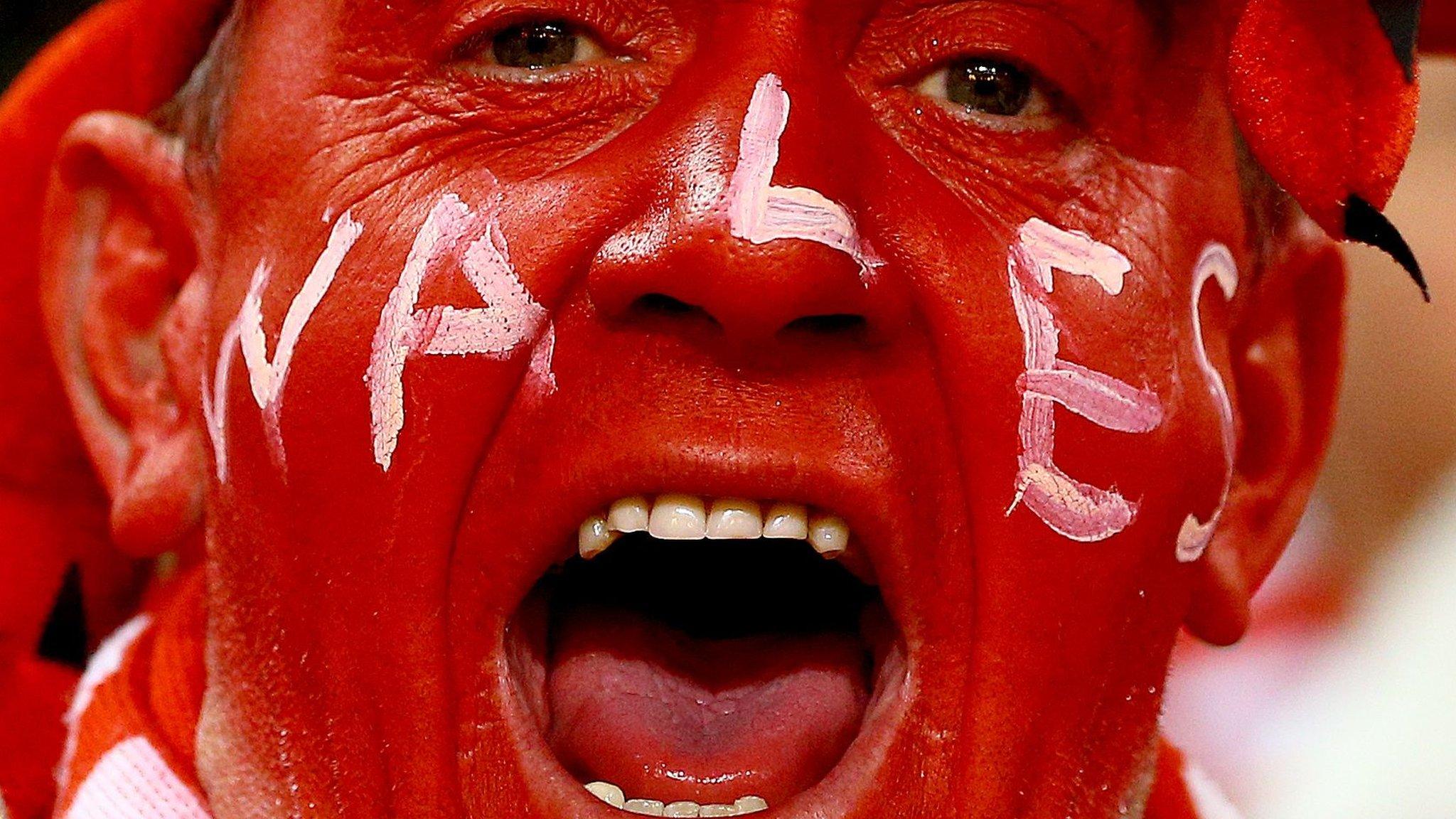
- Published21 November 2016
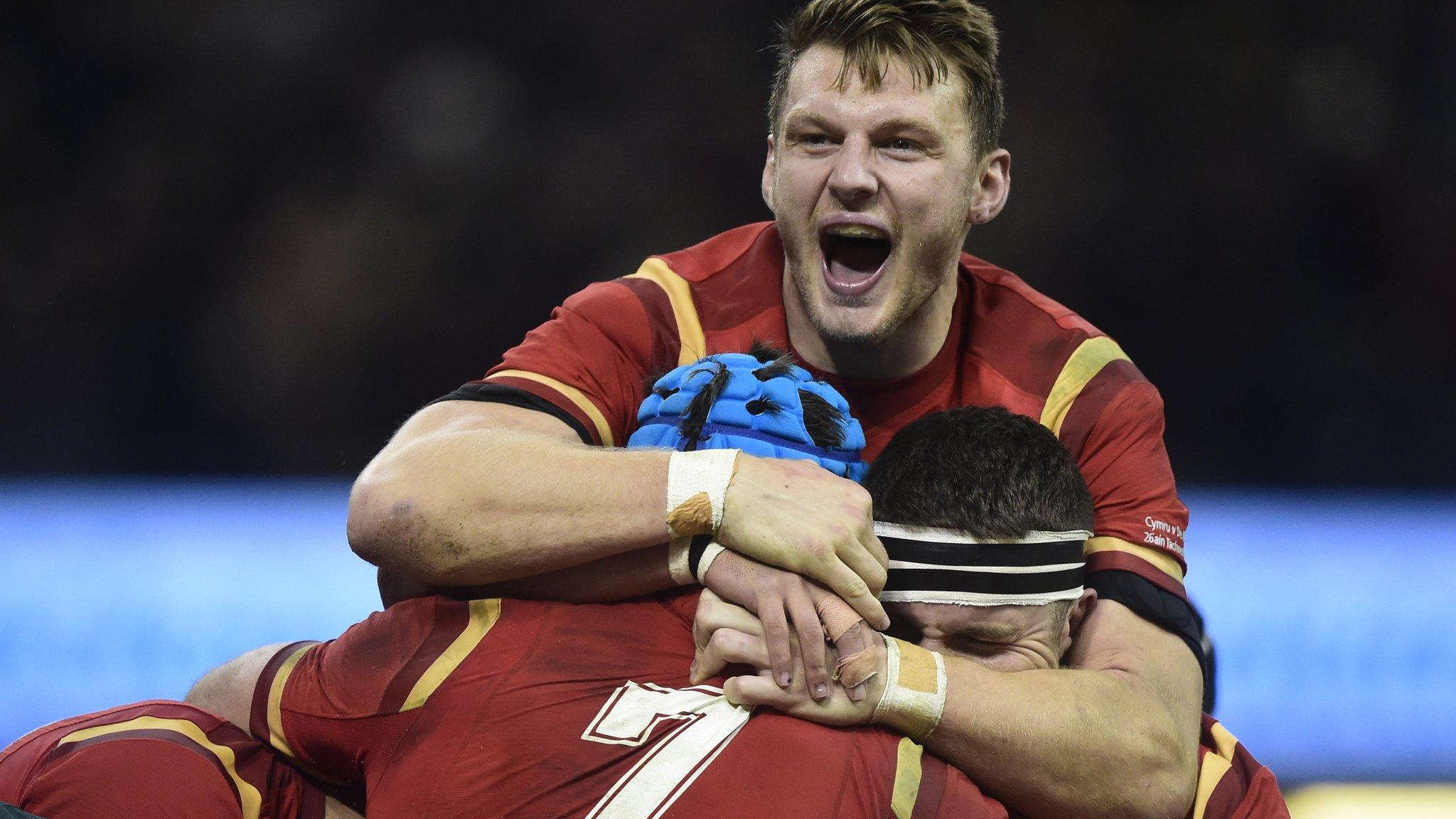
- Published26 November 2016
